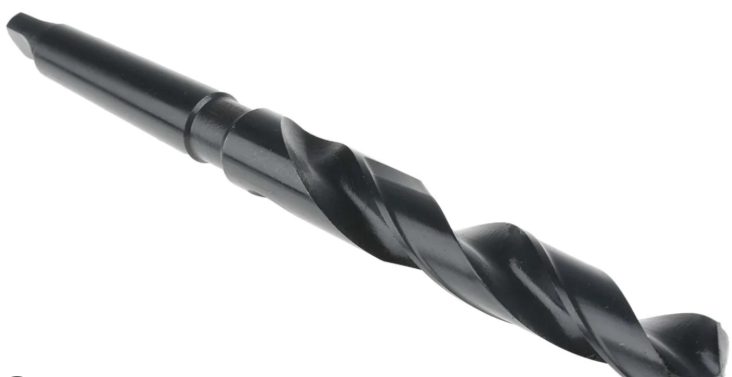In the modern manufacturing and construction world, precision and efficiency play an essential role in achieving consistent results. One of the most commonly used tools in metalworking is the HSS Twist Drill Bit. Produced by brands such as fangda-tools, this type of drill bit has become a practical choice for professionals and hobbyists who value durability and reliability when working with various metals.

Understanding the HSS Twist Drill Bit
HSS, or High-Speed Steel, is a type of alloy known for its ability to maintain hardness at elevated temperatures. This feature makes it suitable for cutting through tough materials like stainless steel, cast iron, and aluminum. The twist design allows for efficient chip removal and smooth drilling performance.
Unlike carbon steel bits, HSS drill bits can handle greater drilling speeds without losing structural integrity. This is especially beneficial when users need consistent accuracy during repeated drilling operations. The material composition typically includes elements such as tungsten, molybdenum, chromium, and vanadium, which contribute to its strength and wear resistance.
Why Choose HSS Drill Bits for Metal Applications?
When selecting a drill bit for metal, the main concerns often involve heat resistance, cutting precision, and tool life. HSS twist drill bits address these aspects effectively. Their thermal stability enables the tool to perform efficiently even under demanding conditions. In addition, their sharp cutting edges create clean holes with minimal burrs, reducing the need for post-processing.
Below is a simple comparison that highlights general performance differences among common drill bit types:
|
Drill Bit Type
|
Typical Material
|
Common Use
|
Heat Resistance
|
Maintenance
|
|
Carbon Steel
|
Basic Steel
|
Wood & Soft Metals
|
Low
|
High
|
|
HSS (High-Speed Steel)
|
Alloy Steel
|
Metal & Harder Alloys
|
Moderate to High
|
Moderate
|
|
Cobalt Alloy
|
HSS with Cobalt
|
Stainless Steel
|
High
|
Moderate
|
|
Carbide
|
Tungsten Carbide
|
Hard Metal & Composites
|
Very High
|
Low
|
While each type serves a purpose, HSS twist drill bits remain a practical balance between affordability, strength, and performance.
Why Should You Upgrade to a High-Quality HSS Twist Drill Bit?
Many users continue to work with standard bits until they wear down or break. However, upgrading to a high-quality HSS twist drill bit can significantly improve productivity and reduce long-term costs.
- Better Wear Resistance: Over time, frequent drilling can cause ordinary bits to dull or chip. An HSS bit with optimized geometry and enhanced surface treatment helps maintain its cutting efficiency. This means fewer replacements and less downtime for tool changes.
- Improved Drilling Accuracy: Precision matters, particularly in metal fabrication or engineering applications. A high-quality HSS bit typically features consistent dimensions and uniform fluting. These aspects help maintain alignment during drilling, minimizing wobble and ensuring accurate hole placement.
- Versatility Across Materials: From mild steel to harder alloys, a robust HSS bit can handle multiple materials. This reduces the need to switch tools between projects, allowing for smoother workflow and consistent outcomes.
- Enhanced Surface Finish: A smoother drilled surface can reduce friction and the likelihood of cracks or material fatigue. By using an HSS twist drill bit with proper sharpening, users achieve a cleaner cut and longer tool lifespan.
- Cost Efficiency in the Long Term: While an HSS drill bit may have a higher initial cost than low-grade alternatives, its durability results in fewer replacements. Over time, this contributes to lower overall expenditure on tooling and maintenance.
Are All HSS Twist Drill Bits the Same — or Does Quality Matter?
Not all HSS drill bits perform the same way. Several factors influence their performance and longevity. Understanding these differences helps users make informed decisions when selecting tools for their specific tasks.
Material Composition
The alloy composition defines how well the bit can handle stress and temperature. Some manufacturers enhance the steel with cobalt or titanium coatings to improve hardness or reduce friction. While coatings can extend tool life, they are only beneficial when properly applied and matched to the material being drilled.
Heat Treatment Process
Proper heat treatment enhances the balance between hardness and toughness. A well-treated bit will resist wear and maintain its edge longer. In contrast, inadequate processing can result in brittleness or premature dulling.
Design and Geometry
The helix angle, point angle, and flute depth all influence cutting performance. For example, a sharper point angle is ideal for thin materials, while a flatter one offers better control on harder surfaces. Precision in manufacturing these angles ensures consistent drilling results.
Coatings and Surface Finish
Various coatings, such as black oxide, titanium nitride (TiN), or titanium aluminum nitride (TiAlN), are applied to improve performance. These layers help reduce friction, prevent corrosion, and extend lifespan. However, even with coatings, the base material quality remains crucial.
Brand Reliability and Consistency
Manufacturers like fangda-tools emphasize consistent production quality, ensuring each bit meets specific dimensional and hardness standards. For professionals, consistency often matters more than marketing terms. It ensures predictable tool performance and reduced waste.
The Role of Technology in HSS Twist Drill Bit Manufacturing
Modern advancements in metallurgy and precision engineering have transformed how drill bits are made. CNC grinding machines, computer-aided design (CAD), and automated quality inspection systems contribute to better consistency and sharper cutting edges.
Surface treatments have also evolved, allowing drill bits to operate at higher speeds with reduced friction. Such developments make HSS drill bits not only practical but also adaptable to new production environments that demand higher efficiency and precision.
Practical Tips for Using and Maintaining HSS Twist Drill Bits
Even the highest-quality bit requires proper handling to perform effectively. Here are some recommendations for maintaining tool efficiency:
- Use Correct Speed and Feed Rate – Excessive speed can cause overheating and shorten tool life.
- Apply Suitable Lubrication – Use appropriate cutting fluid to minimize friction and manage heat.
- Ensure Proper Clamping – Secure the workpiece firmly to prevent vibration and ensure accurate drilling.
- Regrind When Needed – Regular sharpening restores edge geometry and prolongs lifespan.
- Store in Dry Conditions – Keep bits free from moisture and dust to prevent corrosion.
By following these practices, users can extend the usability of their HSS twist drill bits and maintain consistent performance.
Future Trends in Drill Bit Technology
The future of metal drilling tools is evolving toward greater efficiency and environmental responsibility. Manufacturers are investing in sustainable production techniques and recyclable materials. Innovations in nanocoatings and smart tool monitoring systems are also shaping the industry, allowing users to predict wear and optimize cutting conditions.
As industries such as automotive, aerospace, and renewable energy continue to grow, demand for reliable drilling tools will remain steady. Companies that focus on precise engineering, like fangda-tools, are positioned to support these evolving needs with tools that balance performance, longevity, and affordability.
The HSS Twist Drill Bit remains a cornerstone of metalworking due to its balance of durability, speed, and versatility. While all HSS bits may appear similar at first glance, the quality of materials, manufacturing process, and design precision determine their real-world performance.
Choosing a well-engineered bit from a trusted manufacturer like fangda-tools can enhance productivity, minimize downtime, and ensure consistent drilling results. For professionals and workshops aiming for reliable outcomes in metal drilling, an upgrade to a high-quality HSS twist drill bit is not just a tool investment — it is a step toward greater operational efficiency and long-term value.








